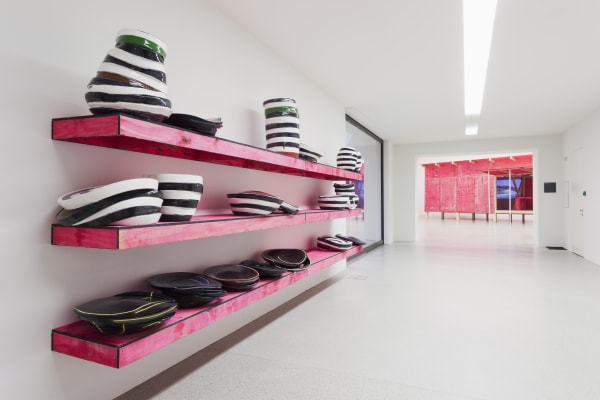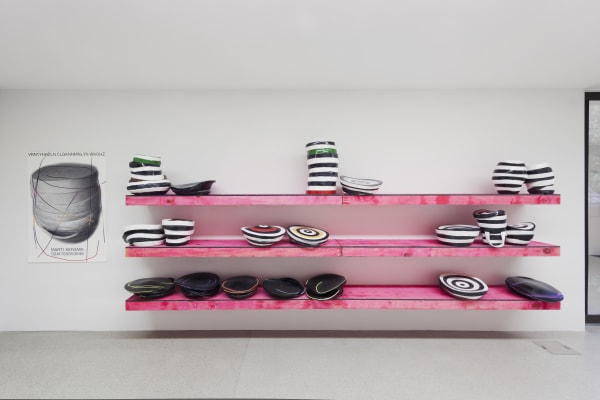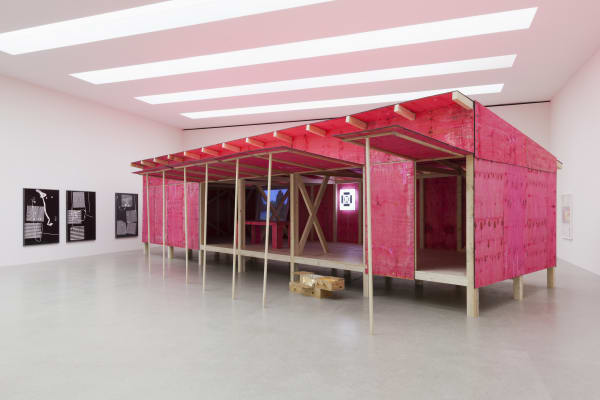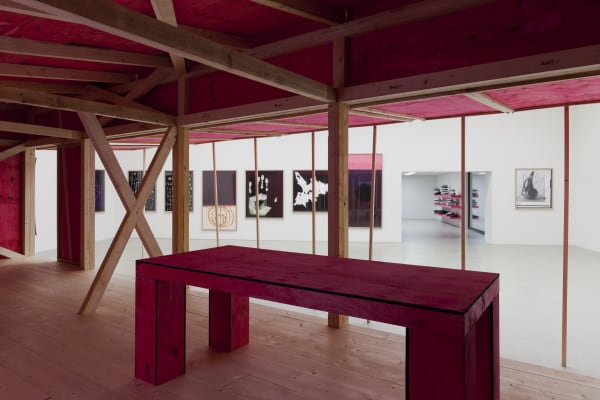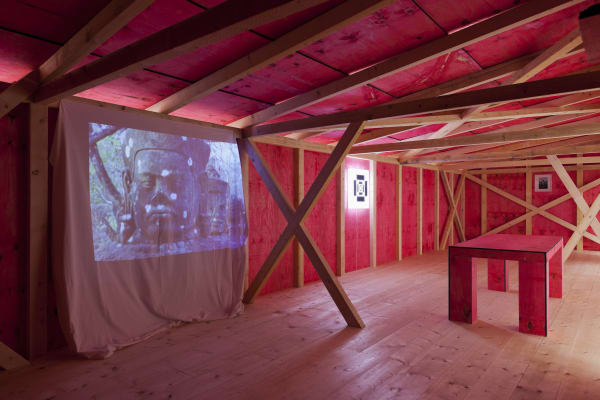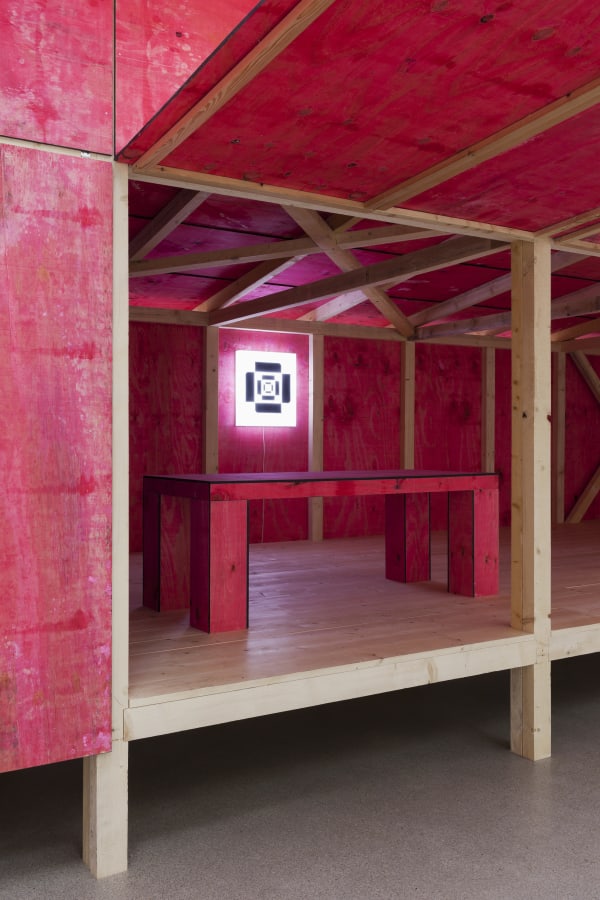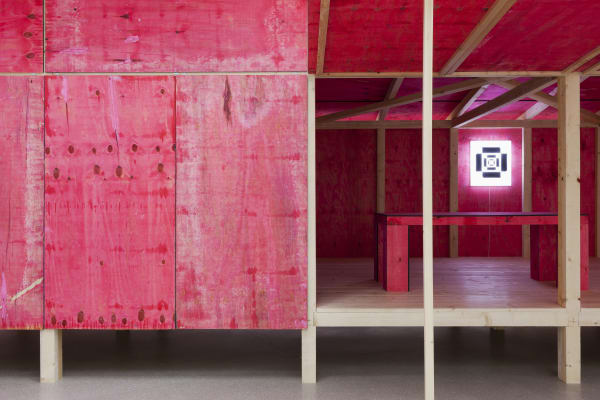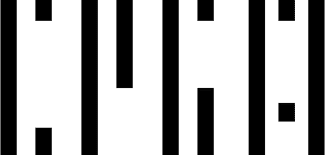Fabian Marti has become one of the most important protagonists of the Swiss art scene. He works with hybrid media – from photograms to ceramics and wallpaper – that span craft and mass production and question subjects such as creativity and authorship. Instead of aspiring to new developments in his own work, Fabian Marti has used his solo show at Kunsthaus CentrePasquArt as an opportunity to invite artists from his network of friends and colleagues to exchange of work of art with him.
His aim was to integrate these with his own work in the presentation. The exchange process is an important element of the artist network because it not only characterises an economy without a currency that avoids the market system but also necessitates communication and discussion.
Fabian Marti‘s large-scale exhibition at Kunsthaus CentrePasquArt deals with subjects presenting aspects of his work that have been important to him for a while. For the first time these are being articulated by Marti in the form of an exhibition: the processes of exchange, collecting and networking, as well as the connections between these. Marti is showing a selection of his own work from the period 2007 to 2013 (inkjet prints, photograms and ceramic objects) with works of art which artists from his network have swapped with him. In this way he is continuing a century-long tradition in which artists have given each other work in friendship and mutual respect. What interests Marti about exchange is that it deals with a form of dialogue that goes hand in hand with networking among artists. Through the process of exchange Marti automatically becomes a collector. In contrast with a traditional collector who is not necessarily interested in the artist personally, for Marti it is important above all that work and artist form a unit and that he identifies with them as an artist.
Through the exchange process Marti and the other artists appropriate the additional role of a kind of subversive dealer: by removing all the work from the market, there arises a subtle but clear criticism of the art market system. With exchange, where instead of money for an item or a service one work of art is swapped for another, artists withdraw from the market system and create in its place an economy without a currency. They can determine the conditions autonomously by defining a parity between works.
In addition, in the Salle Poma Marti is presenting TwoHOTEL, a replica of a structure which he constructed on a beach in Bahia, Brazil in February 2013. Similar to the exchange of works, TwoHOTEL doesn’t function on an institutional or commercial level but is passed by word of mouth among artists and is based entirely on friendship and artistic appreciation. The idea of a hotel as a creative act was inspired by Alighero Boetti‘s „One Hotel“ which the Italian artist cultivated in Kabul in the 1970s. However, TwoHOTEL has a rather different focus since it was conceived specifically for artists as a live-work studio for short stays. The architectonic structure of TwoHOTEL is based on the materiality of the pink maderite boards which are used throughout Brazil for simple needs in the building trade and not usually for houses. In Marti‘s replacement of the context of the tropical exterior space with a European art space, the hotel has itself become a symbol of exchange that can be used by artists from his ever growing network.

